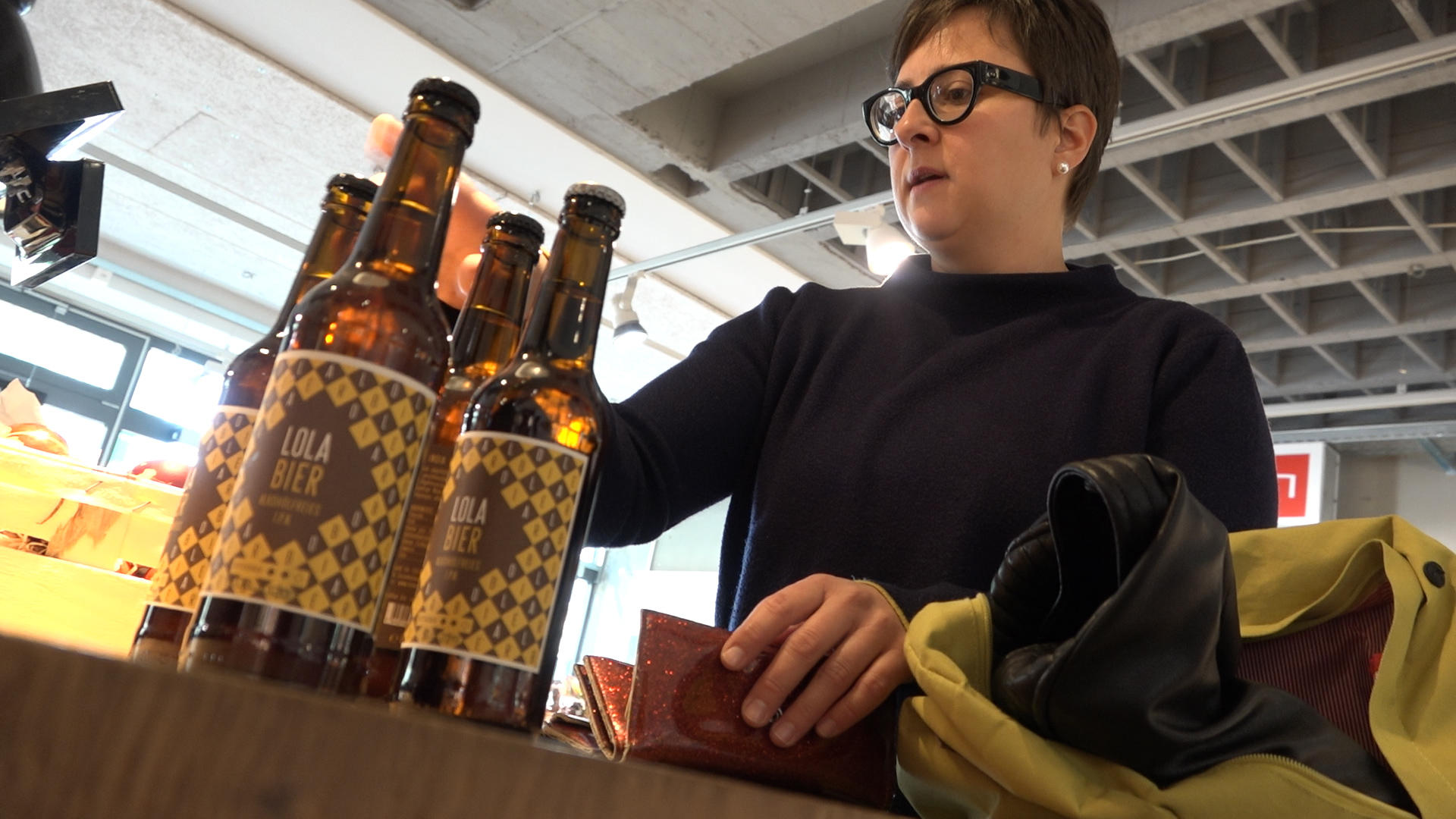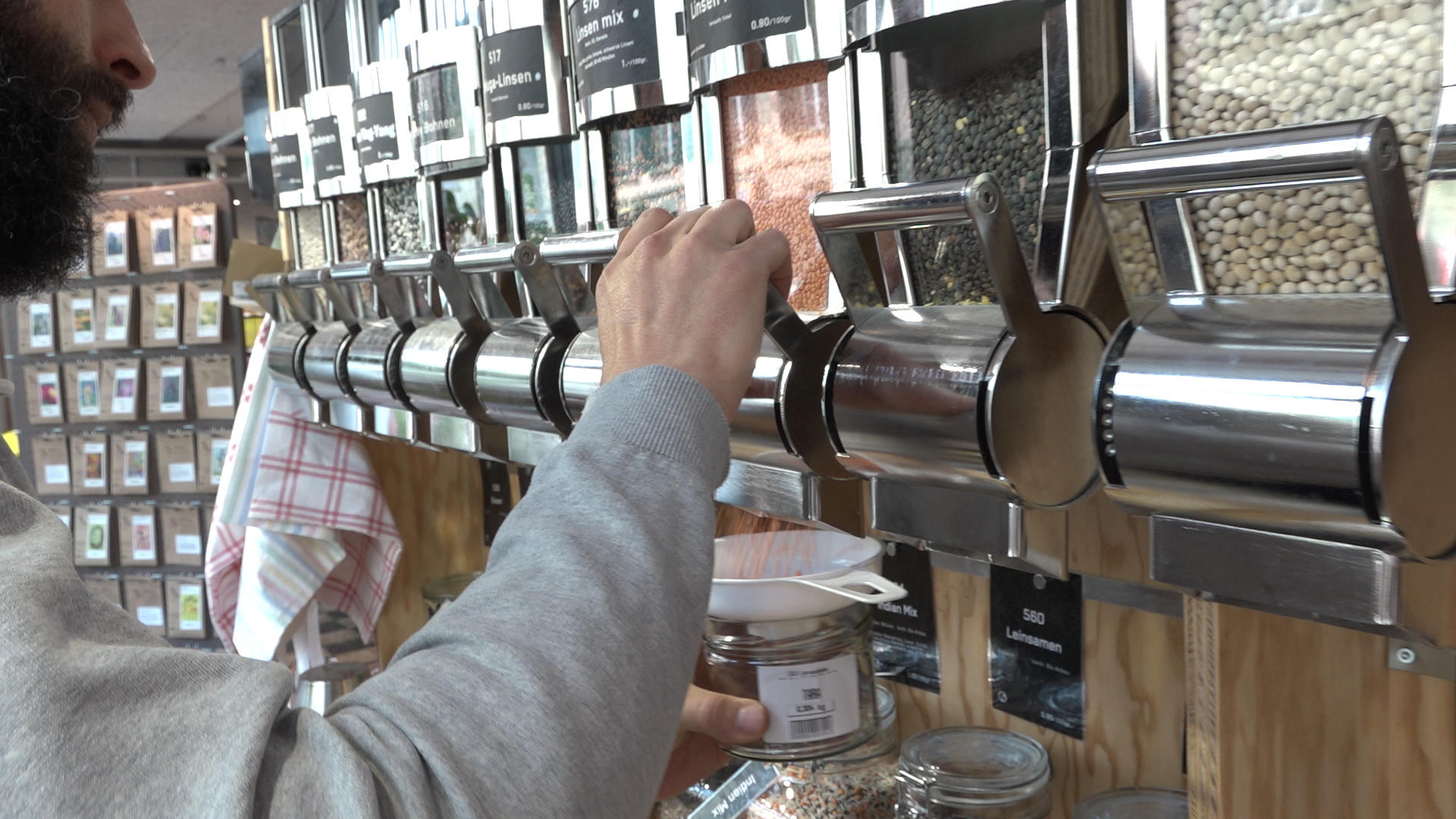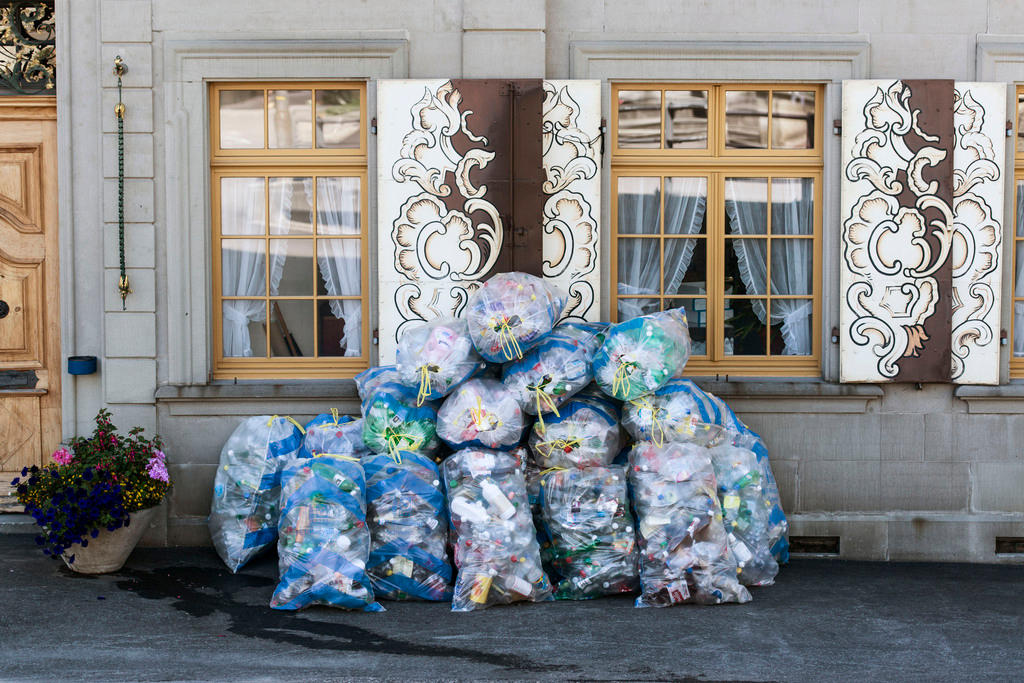The rise of zero-waste shops in Switzerland

So-called zero-waste businesses are springing up all over Switzerland as consumer demand grows for more organic products and less plastic packaging. swissinfo.ch visited a zero-waste shop in Bern.
Every year, the average Swiss generates more than 700External link kilograms of rubbish – one of the highest rates in the world, according to the European Environment Agency and the Organisation for Economic Co-operation and Development (OECD). A lot of it is food waste: 2.5 million tonnes per year, according to the government’s environmental report 2018External link.
And then there’s all the plastic: ready meals and disposable packaging for fast food contribute to the waste mountain and exacerbate the littering problem.
+Why does Switzerland recycle so little of the plastic it produces?
Backlash
“Zero waste” is not just about ditching plastic, it’s also about not frittering away resources in the first place. The ZeroWaste Switzerland AssociationExternal link, founded in 2015, wants to change consumer habits and is fighting for legislation that would reduce the production of waste in Switzerland.
The group has produced this interactive mapExternal link of businesses around the country that share its philosophy: shops, restaurants, bulk stores, depot systems, second-hand shops and repair services.
The shops offer organic products that are locally sourced when possible, often sold in reusable containers. swissinfo.ch visited one such store in the capital, Bern.
“LOLAExternal link” is run by the Contact AssociationExternal link for outpatient addiction help in canton Bern. The organic store started offering “unpacked” (avoiding the use of plastic) products in 2017.
Claudio C. is a regular customer. We asked him what the biggest challenge was when adopting the zero-waste lifestyle. “The biggest challenge is having to think about only buying what you need and not more,” he explained.
We also spoke to shop manager Daniel König about how it all works:

More
Is zero waste really achievable?
Supermarkets’ take on plastic
König is convinced that the popularity of zero waste puts pressure on the major food distributors to become greener.
“At Coop now you see products packed in paper and sealed with rubber bands. They’re working to optimise processes to reduce the amount of rubbish caused by packaging,” he says. “You also find nuts in containers at the major supermarkets – you take what you need.”
Brigitte Jungblut, spokesperson for CoopExternal link, says: “Since 2012 we have reduced or ecologically optimised over 19,000 tonnes of packaging material. We will reduce or optimise a further 8,000 tonnes by 2020.”
On its website, External linkCoop’s rival Migros explains that supplies now come in reusable containers instead of cardboard boxes. But for Migros, plastic still plays an important role. “The premature spoilage of products has much greater impact on the environmental footprint than the packaging,” it says.

In compliance with the JTI standards
More: SWI swissinfo.ch certified by the Journalism Trust Initiative












You can find an overview of ongoing debates with our journalists here . Please join us!
If you want to start a conversation about a topic raised in this article or want to report factual errors, email us at english@swissinfo.ch.